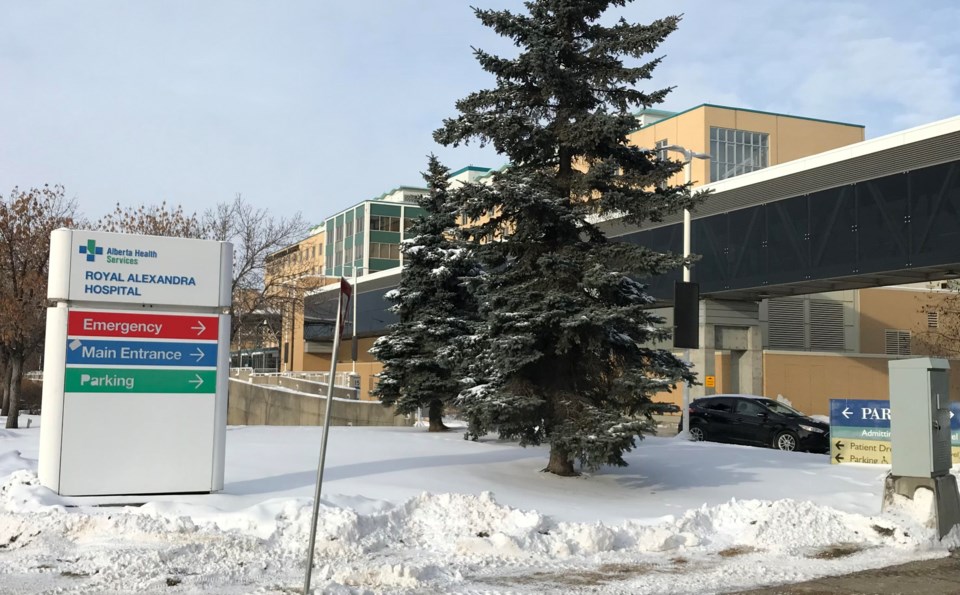Front-line health care workers in Alberta face overwhelming challenges every time they don their protective gear, say officials from two different unions.
"I will tell you that I have a lot of nurses coming to me breaking down. The long hours, the trauma, the overwhelming fear," said Rochelle Walker, the United Nurses of Alberta (UNA) local rep for Royal Alexandra Hospital's 2,500 nurses.
"There is moral distress. They give their all and they feel like they didn't do enough."
An official representing 58,000 health care employees across the province gave a similar response when asked to describe how front-line workers have been coping since COVID-19 hit Alberta eight months ago.
“We have moved from hope and determination to fear and exhaustion,” said Susan Slade, vice-president of the Alberta Union of Provincial Employees (AUPE).
“Our hospitals and continuing-care facilities are struggling with the number of cases and with a severe shortage of staff. Sometimes it feels like there is no end in sight.”
Slade pointed to "frightening" statistics of infections among health care workers. Statistics from the province, up to date as of Nov. 21, showed 3,505 health care workers had contracted the virus since the pandemic began, and 520 are actively infected.
While exact numbers for the RAH were not available, Walker said there was a staffing crisis before COVID-19 and “now the staffing shortage is critical.”
Both union officials said there is no such thing as a typical work day for front-line workers.
"Taking a break to eat or rest at work is becoming increasingly difficult, even in long shifts," said Slade. "People seem to be in survival mode, just trying to get through another shift."
Walker echoed those comments, saying RAH nurses are often so busy they are unable to step away for a little down time.
"It is not uncommon for nurses to work through their breaks. Patient care always comes first and nurses regularly sacrifice their own needs," she said.
As the pandemic lingers, Walker fears patient care will be affected.
"The elastic has been stretched to the breaking point. It may already be broken. Nurses are fearful for their patients and feel patient safety is being placed at risk."
Slade agreed, adding health care workers have the added worry of bringing COVID-19 home to their families or becoming an ICU patient themselves with increasingly fewer beds available.
"The determination to do the job, to care for the patients, is still there, but it’s getting harder.”
Walker says she also worries about the long-term effect the crisis is having on front-line workers.
"I do worry that this pandemic and the moral distress associated with it will have a lasting and devastating effect on our nurses."
Slade said the ongoing battle with the province over job security has also raised the stress level. Front-line workers staged an illegal wildcat strike in late October to protest the province's plan to privatize up to 11,000 AHS jobs; the province has said those cuts will not hit front-line physician positions, and will save Alberta $600 million per year.
Most of the cuts, about 9,700 jobs, are destined for support services as the province outsources laundry and community lab services.
“Support workers literally keep the hospitals and care facilities running. Without them, this health crisis would be far, far worse. They save lives. It’s not too much to ask that we save their jobs and protect health care from corporate profiteers," Slade said.
When asked to respond to questions about support for health care workers, Alberta Health Services stated, "We understand that our staff is fatigued after months of responding to the pandemic. We are doing everything we can to support our staff, especially those at sites impacted by outbreaks.”
The response also stated AHS workers “can find support through the Employee and Family Assistance Program, which offers a range of services to help staff navigate through work, health and life challenges. We have numerous employee and health wellness programs and resources that address topics like stress management, sleep and fatigue, resiliency and healthy eating."
Both union reps pleaded with Albertans to do their part in the fight against COVID-19.
Slade said, "Our message to Albertans is to please take the pandemic as seriously as we take our work. Don’t make it more dangerous by ignoring the restrictions or denying that the pandemic is real.”
On behalf of the nurses she represents, Walker said, "We urge you to follow best practices, wear masks, social distance and wash your hands. Please help get us through this."
Gary Poignant is a freelance writer and regular contributor to Great West Newspapers. This story was funded by the Facebook Journalism Project Supporting Local News Coverage of COVID-19 Program via the Local Media Foundation.
CORRECTION: an addition was made to this story in paragraph 19 to reflect that the cuts being made will not hit front-line physician or nurse positions.



